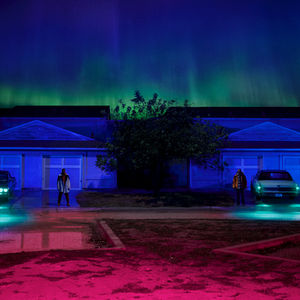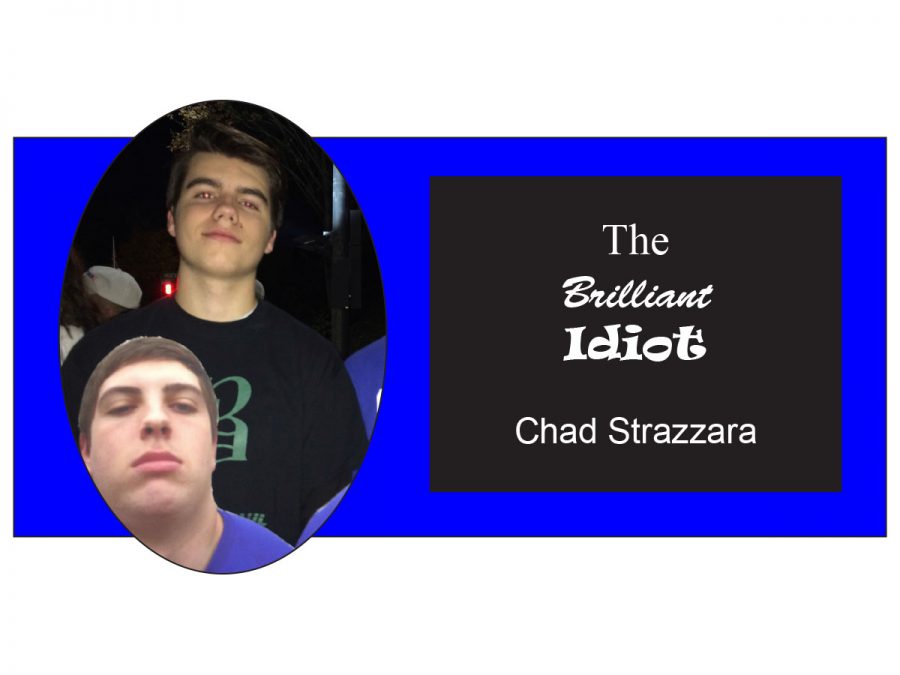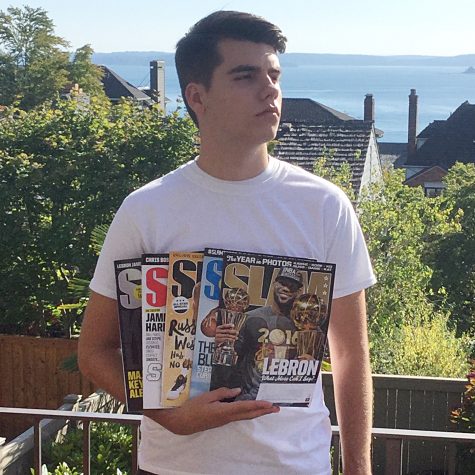Big Sean Shows Tremendous Growth on I Decided.
February 22, 2017
To hear Big Sean tell it, he’s living in the Twilight Zone.
The concept behind his new album, the dramatically punctuated I Decided., plays out loosely in a handful of skits, but it’s underlined plainly in a phone call between Sean and his mother which closes out the album.
At 28-years-old, with three successful albums and deals with both Kanye West and Jay Z, things are going so well for Big Sean that he is convinced he must be living out a second chance at life, his re-do.

As the album begins, a world-weary old man is too busy lamenting a wasted life to notice a car barreling towards him. Cue dreamy piano keys and Jeremih’s ethereal voice; The man is reborn as Sean with his whole life ahead of him and renewed hope and energy to put on for himself and his city. Now, he has the foresight to steer himself away from past mistakes and towards fixing old ones, and is set on making the most of it.
It’s a concept that seems more fitting for a debut album than a fourth, and the fact that Sean is still dwelling on his success, despite 10 years in the industry and 6 since the release of his first album, says a lot about his state of mind.
Alluded to by Sean on “No More Interviews” — a promotional single released in late 2016 to begin garnering anticipation for the album — the bulk of I Decided. features a subtext of arrogance and indignation beneath Sean’s trademark affability.
“‘Damn Sean, what happened to the humble attitude?’” he mocks early on in the album on the track “No Favors,” before revealing the source of his frustration later in the verse: “‘Cause when you try to get even it just don’t even out.”
Big Sean works hard, and reminding us how hard he works has been a go-to trope of his since he controversially described his work ethic as “[going] from 10 to 10 like a Mexican” in 2013. That being said, it’s hard not to empathize with the feelings Sean conveys on the album; the narrative of a track like “Bounce Back” rings true.
Sean rebounded from a universally acknowledged sophomore slump — references to being counted out are littered across I Decided. — and returned not only with a better project, but furthermore his best project to date (critically and commercially). Still, the various superlatives reserved for rap’s reigning class are only ever applied to his peers.
The disdain on “No More Interviews” — “I’m not impressed with the whoopty woop, I don’t know who is who… And I’m just not impressed by [artists] rapping fast. Who sound like one big asthma attack, but trash when I’m rapping it back” — was tangible, and seemed to set the stage for a moody, almost petulant Sean on his fourth go-round. However, it is made clear in the conclusion of I Decided. that Sean has already come out on the other side of that turmoil, and this album is him literally arcing out his path to enlightenment.
Self-doubt and anxiety get a full showcase on “Halfway Off the Balcony” and “Voices in My Head/Stick to the Plan” but only so that Sean can crash and rebuild by dialing in on what’s most important.
Tracks like “Sunday Morning Jetpack” and “Inspire Me” are both odes to family; “Sacrifices” reckons with the compromise and loss required to stave off a fate like the Ghost of Detroit past, while also building up a girl—the One Who (Had) Got Away he wins back earlier in the story on album standout “Jump Out the Window” — willing to hold him down through it.
By the time “Bigger Than Me,” Sean’s best outro to date, rides out on the dulcet hymns of the Flint Chozen Choir, Sean’s character has achieved full-on spiritual repose, a peace we saw Sean achieve during the beginning of the album’s promo run.
On The Tonight Show, Sean added these bars to a live performance of “Bounce Back”: “I decided that counting money never feel as good as counting blessings…I decided for the first time in my life no second guessing. I decided in this moment and time right now who the best is. I’m the best.”
It’s a conviction reflected in the tracklist itself. Coming off of Hall of Fame, Dark Sky Paradise had to have blockbuster moments like Kanye and Drake on the same song, Chris and Ty Dolla $ign on another, and an Ariana Grande hook to secure all markets and attention.
Having accomplished the goal of reassertion though, Sean’s left to his own devices here, and feeling secure in his own abilities. The Rolodex of famous friends from the GOOD Music/Roc Nation roster, as well as the countless other artists Sean has built relationships with, remains largely untouched (short of an understandable reach out to the Migos
Successfully commanding our attention with his usual array of flows predominantly by himself, over production from personal go-tos like Key Wane and Amaire Johnson — as well as a few beats from big name producers like Metro Boomin, DJ Mustard, and DJ Dahi — was the direction Sean needed to take in order to truly underline his ambitions.
On his fourth album, Big Sean is made better by his definitive decision to stop dwelling on why he doesn’t always get enough shine, and just focus on doing.






